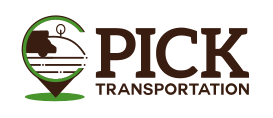PICK Transportation — Rural Oklahoma
Connecting more communities, more hours, for more people
Scaled from a four-community pilot to an 18-community, multi-agency ADA on-demand network — now running with sustainable funding and clear, board-ready reporting.
The Challenge
Rural Oklahoma communities were struggling to fill big transportation gaps — especially during evenings and weekends.
Many residents working non-traditional hours or needing urgent healthcare trips had few reliable options.
Several local and Tribal transit agencies wanted to work together but needed:
A single, seamless rider experience across agencies
A clear governance structure
A long-term funding plan beyond the pilot phase
The existing technology made things even harder. Reporting was limited, and there wasn’t enough visibility into why people were riding — which meant it was difficult to show funders the full community and economic impact.
What We Did
We rolled up our sleeves and worked directly with the people who know the system best — riders, drivers, dispatchers, and leadership teams.
Together, we:
Expanded the service focus — starting as a workforce-mobility pilot and growing to include essential trips like healthcare, childcare, grocery runs, and hospital discharges.
Clarified the value for every partner — riders, local governments, Tribal nations, hospitals, and employers all saw how the program worked for them.
Built stronger reporting and transparency — creating a board-ready KPI dashboard and monthly reporting rhythm that tied into FTA Section 5311 and other funder requirements.
Helped upgrade the technology — supporting a smooth transition to a new rural-ready platform that allowed unified booking, billing, and reporting across all participating agencies.
Created launch and expansion materials — including communications, rider messaging, and outreach pieces that helped communities understand and use the new service.
The Results
Funding & Sustainability
Started with a $1.5 M Federal Transit Administration IMI grant plus ODOT local match.
Established a stable funding path through Section 5311 and ongoing local partner contributions.
Scale & Reach
Expanded service from 4 to 18 rural communities, covering more than 30,000 miles across western Oklahoma.
Added new evening service in Altus and at Altus Air Force Base, the first in the region.
Reporting & Partnerships
Implemented a unified ADA-compliant on-demand platform with trip-purpose analytics and direct hospital billing for patient discharges.
Improved leadership reporting for faster, data-driven decisions.
Strengthened cooperation among Tribal, local and state partners.
Project Artifacts
Case Study PDF: Downloadable summary of the full project
Service-Area Map: Visual overview of all participating communities
KPI Dashboard Sample: Snapshot of performance metrics
Rider-Facing Materials: Campaign samples and outreach graphics
A Path Forward
PICK Transportation has become a model for how rural communities can expand access without starting from scratch.
By combining practical collaboration, clear reporting, and community-driven design, western Oklahoma now has a connected, sustainable network that works for everyone.
